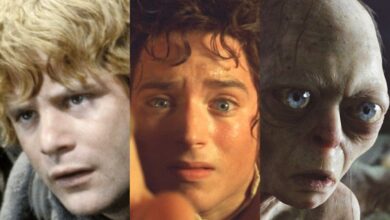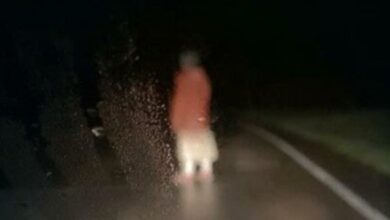The Banshees of Inisherin review: A Martin McDonagh film equal to In Bruges – if not better

Dir: Martin McDonagh. Starring: Colin Farrell, Brendan Gleeson, Kerry Condon, Barry Keoghan. 15, 114 minutes.
Violence always bursts forth from the pen of Martin McDonagh. The British-Irish director and playwright has spent decades larking about in the realm of angry, impotent men – whether it’s The Lieutenant of Inishmore (2001) or In Bruges (2008). But The Banshees of Inisherin, which reunites his In Bruges stars Colin Farrell and Brendan Gleeson, may contain the most exquisitely McDonagh-ish image of them all. Gleeson’s Colm Doherty, without warning, has ended his friendship with Farrell’s Pádraic Súilleabháin. “I just don’t like you no more,” he states, as if it were the simplest thing in the world. When Pádraic, wounded, attempts to rebuild the bridge between them, Colm threatens to take a pair of shears to each of his fingers until he’s finally left alone. The threat is not an idle one.
McDonagh’s latest is heart-wrenching in its simplicity, dark-humoured and unadorned in its sentiments. It’s a film equal to In Bruges – perhaps even more effective in the way its relative restraint presents brutality as humdrum as a trip to the pub or a pat on the head of Pádraic’s moon-eyed donkey, Jenny. Colm’s savagery isn’t directed towards his former friend, although he resents the man’s many soliloquies about animal droppings for sapping away the vital moments of his quickly fleeting life. It’s time he could have spent in the pursuit of music, a legacy of worth.
No, Colm’s compulsion is purely towards self-obliteration. He would rather pull off the very tools needed to play his fiddle rather than wrestle with the idea that he’s wasted his own life. It’s a sharp metaphor for the existential burdens of small-island life, here in Inisherin, a fictional member of the Aran Islands. As Colm argues, citing the great classical composers, “nobody from the 17th century was remembered for being nice”. It’s that same fear of monotony that tortures Pádraic’s pin-sharp and literary-minded sister Siobhán (a wonderful Kerry Condon). When her brother finds out the book she’s reading is sad, he suggests that she reads a happier one, lest she gets lonely. It poses a deceptively simple but tortuous question: what exactly are we all living for? Happiness or meaning?
Colm and Pádraic’s empty but resolute war is echoed, too, across the waters and on the mainland. It’s 1923, and the Irish Civil War has entered its final chapter. “Good luck to you, whatever it is you’re fighting about,” Pádraic mumbles to no one, as the sound of gunfire ricochets. McDonagh’s point here is less about the specific roots of such a feud. The Banshees of Inisherin instead frames violence as an aimless expression of, as Siobhán puts it, “bleakness and grudges and loneliness and spite”. The local policeman, Peadar Kearney (Gary Lydon), has been called to the mainland to oversee an execution. He can’t quite remember who’s executing who. But he does channel his own rage by regularly pummelling his son, Dominic (Barry Keoghan, in the kind of twitchy role that only Barry Keoghan can play), who’s perhaps the only man on the island sweeter and lonelier and more innocent than Pádraic.
Though Gleeson’s crumpled resignation finds ample room for both nobility and cruelty, it’s Farrell who really anchors the film. It’s tricky to play a character who every other character refers to only as a dullard, and then to make him so worthy of our sympathy and pain. But when the actor’s eyebrows twist up like a pair of divining rods, he’s able to push that “kicked puppy” look into something profoundly tragic. The Banshees of the Inisherin is really a beautiful work to behold.





